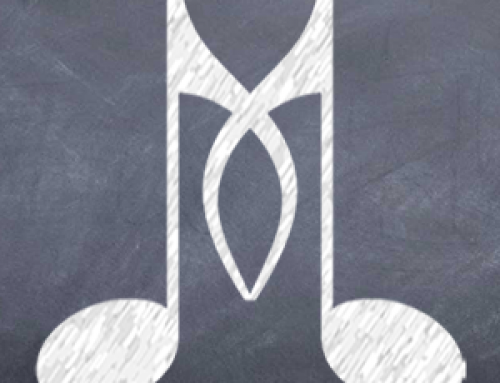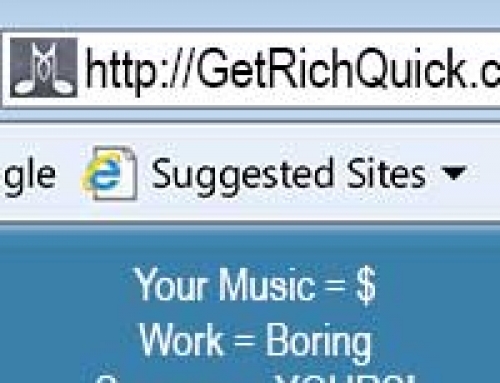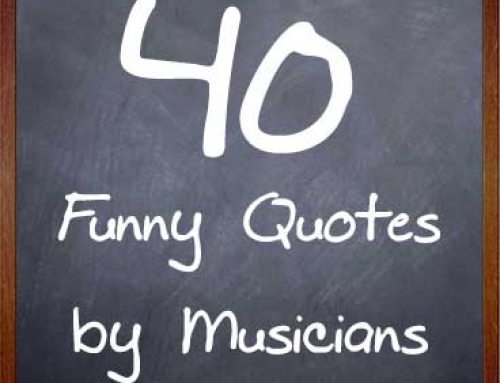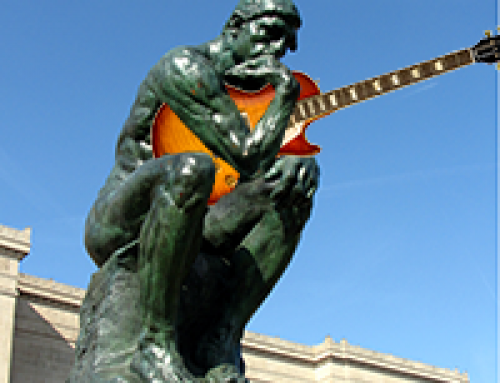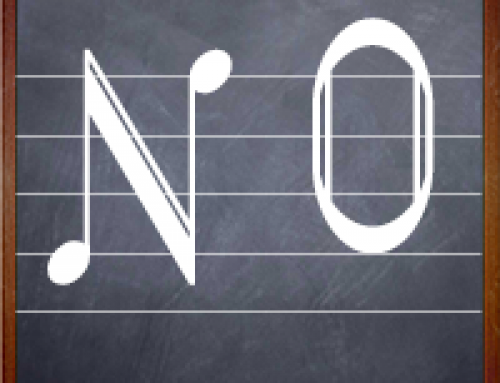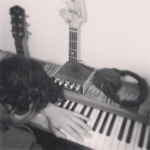
How to Get Your Musical Passion and Drive Back:
A Guide for the Uninspired Musician
I recently received a message from a Facebook user saying, “How do I find my drive or get my drive back? I know what I want, but my dreams are constantly put on hold because of reality.” This is a really difficult question to answer because it corresponds to a struggle that musicians face everyday. I promised that I would write a blog article to attempt to answer this question, so here it goes…
So, where did your drive go?
Lost drive or passion can be attributed to many things and it can affect both full-time and part-time musicians. Since both of these musician types have different reasons for being “burnt”, I’ll address each separately.
Part-Time Musicians: The majority of musicians in the world have “day jobs”. This is due to a few reasons; the music industry is very competitive, many musicians prefer the financial security of a day job, many musicians support families or have other financial obligations, etc. The reason many part-time musicians feel “burnt out” is because they deal with many external factors that take priority over music in their lives. They feel frustrated by their busy schedules and wish they had more time to devote to music. Also, some part-time musicians find it difficult to tap into their creative energy quickly and “turn-off” the stresses of their daily lives. This can be extremely frustrating since they may only have limited time to devote to music on a daily basis. The funny thing is, there are also many part-time musicians who are more “fulfilled” and “passionate” than full-time musicians. This is because they treat every gig or practice session like a sacred event. Since they are not jaded by the pressures of paying the bills from music and/or daily gigging, they are truly grateful for the opportunity to write, practice, compose, perform, etc. They feel fortunate to be able to support themselves and make music, so they are essentially grateful for both their day-job and their music career. This is the perspective you need have in order avoid bringing your day-job frustration and resentment into your musical life. This can be an extremely difficult task especially when dealing with work pressures, sick or ailing family, etc. Basically you have to figure out how to mentally separate your daily stresses and your music career… I will discuss some coping methods later in this article.
Full-Time Musicians: If you think that full-time musicians don’t get as “burnt out”, you’re wrong. It might seem like “the grass is greener” from the outsider’s perspective, but full-time musicians have their own set of problems they must deal with in order to keep their drive and passion alive. The biggest stresses that can affect full-time musicians are lack of money/job security and having to play mundane gigs in order to pay the rent. Let’s talk about money first. Being a full-time freelancer is difficult work and it’s mentally challenging to deal with the stress of not having job security. If you stop hustling, you will lose work. If you get sick or injured, you will lose work. This is a lot of pressure and it can stifle your drive and passion. Also, this correlates with the other issue I mentioned, playing uninspiring gigs. In order to create some financial security, many musicians will play gigs that they don’t aesthetically care for (but they pay the bills). If the majority of your schedule is filled with this type of work, you are in danger of burning out. These are very difficult problems to deal with, but perspective is still the key to keeping your drive and passion alive. Full-time musicians with an abundance of drive and passion don’t allow themselves to get creatively stagnant. They find the time to continually develop new skills in their music careers and they evolve with the industry. Just because you may have some regular uninspiring paying gigs, doesn’t mean that you shouldn’t do creatively pleasing work on the side. The bottom line is that you must find a way to stay fresh.
So, how do I get my drive and passion back?
OK, so here’s the part where you have to do all the work…ha. Once more, finding creative energy and drive is really all about perspective…essentially it’s in your head. Again, I’m going to break this up between part-time and full-time musicians because I feel that each group has a slightly different set of problems (even though we’re all completely nuts).
Part-Time Musicians: First things first, don’t be jealous of full-time musicians because you must remember, “the grass always seems greener”. Be happy with what you have and try not to get frustrated with your daily non-musical life. Also, don’t blame anyone or anything for the state of your music career. This includes blaming your family or friends for hampering your dreams, blaming the music industry for signing subpar acts or blaming your boss for stressing you out. Once you learn to take all of the responsibility for the state of your music career and free yourself of the excuses, you’ll have a better chance at getting your drive back. Did you ever take notice of what you feel like when something good happens in your life? You feel positive, driven and motivated to take on the world. This is because you’re happy and you’re feeling empowered. Conversely, when you’re upset you feel quite the opposite. Your Mood = Your Drive. I don’t want to sound like a self-help guru, but you must figure out how to adapt your mindset. There are many ways to do this but since I’m not a psychologist, I’ll spare you my Dr. Phil speech. That being said, I know many musicians that exercise, practice yoga, meditate, surf, snowboard, etc. You have to find your form of healthy coping and stick to the plan in order to get your mojo back. If that doesn’t work, don’t feel weird about seeing a therapist (this goes for full-time musicians too). There are affordable clinics in almost every city where you can see someone on a sliding scale. So, if you need to talk it out, don’t be ashamed to seek out help.
Full-Time Musicians: The most important piece of advice I can give full-time musicians is to always remember why you got into the music industry. When I was in high school, I said to myself, “I’ll be happy when I’m making a living playing music…that’s all I need.” Since I’ve been making a living in the music industry for 18 years, this is something that I’ve had to remind myself of many times, especially during financially tough periods (which every musician has been through). If you forget about the passion that got you started as a musician, you’re finished. So why are some full-time musicians so burnt out? Well, like I said in the last section, the pressure to pay your bills will often lead to “mundane” paying gigs. Some other causes are jealousy and resentment towards “more successful” musicians and a general frustration with the music industry. Musicians that have been active for a long time sometimes feel that they have paid their dues and deserve success more than others. They can also start to get bitter due to losing out on auditions and/or being passed over for good opportunities. All of these things can easily destroy your drive and passion, making your music career a very boring routine. Again, the way around this is to be mentally strong and to change your perspective. Instead of being threatened by successful musicians, use their talent and passion to help spark yours. Also, embrace the changes in the industry and find a new niche for yourself. In the case that you’re playing too many gigs you dislike, make sure you also find time to play gigs that are artistically gratifying (regardless of the pay). Or start doing something that will help you in the future like learning how to mix, master or produce your own tracks. Learning a new musical skill or bettering yourself will give your uninspiring gigs a purpose. Think of it like mowing lawns in order to pay for college. You need to make money, but you shouldn’t be stagnant in your job. You should always think of these gigs as a way to help support yourself while you’re pursuing something more gratifying. It’s also important to note that you have to find a way to have fun and enjoy your “mundane” gigs. If you’re going through the motions, people will smell it a mile away and nobody wants to play with an uninspired musician. Again, change your perspective and enjoy what you already have. You are currently making your living playing music…life isn’t so bad right? Now, make your life even better by furthering your music career. I can’t stress this enough…don’t be too complacent, but be grateful, happy and driven. Also, like I said in the last section about the part-time musicians, find a hobby that you love (surfing, skateboarding, reading, yoga, etc.). This can act as therapy and it may help give you a fresh perspective if you’re feeling “burnt out”.
All Musicians: The most important thing that both full-time and part-time musicians can do to avoid burnout is to continue evolving. This means practicing new things on your instrument, writing new songs or compositions, learning music software, practicing your mixing and mastering skills, learning about licensing and the industry, etc. If you are actively taking time each day to further your music career, your drive and passion will be fresh and intact. This is also where your discipline will have to come into play. You must get into a routine of working on your craft every day, even if it’s only for a ½ hour. Depending on your daily responsibilities, this may mean waking up a little earlier or shifting around your schedule a little, but you have to figure out how to make this sacrifice or you will get stale. Also, this must be dedicated music time; no phone calls, no TV, no web surfing, etc. The more uninterrupted music time you schedule daily, the more drive and passion you have. Instead of going too deep into this concept, I’m going to recommend a book that tackles this issue head on. It’s called “The War of Art: Break Through the Blocks and Win Your Inner Creative Battles”, by Steven Pressfield. This book is crucial for anyone who is having trouble finding his or her drive, creativity and motivation. It will help you understand why you’re stuck, it will kick you in the ass and it will get you moving in the right direction. And for those of you skeptical about self-help books, be assured that this is just practical advice and knowledge written by a creative person who struggled and overcame these same issues himself. Anyway, I won’t post a link to the book in this article because I don’t want to seem like I’m getting a sales commission or anything, but you can find it at Amazon, etc.
I hope all of this helps and although I’m definitely not a self-help guru or a psychologist, I’ve seen countless musicians lose their drive and find it again. Remember, it’s all in your head…you have the power to take control of your music career. So what are you waiting for?
-Adam Small

Adam’s MMMC Artist Profile
Adam’s Music Consulting & Management Page


